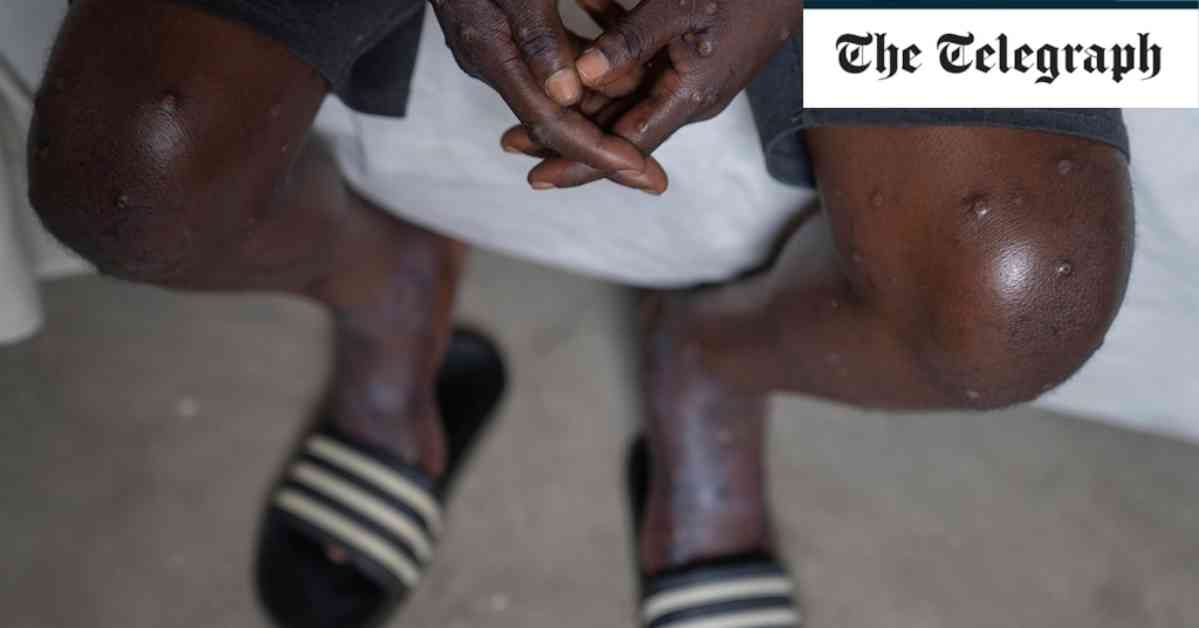The emergence of a new, potentially more dangerous variant of mpox in Europe has raised concerns among scientists and health authorities. The mutant strain, known as clade 1b, has rapidly spread from the Democratic Republic of Congo (DRC) to several neighboring countries, prompting the World Health Organization to declare a global health emergency. As the first case in Europe was reported, European health agencies are on high alert, warning of the potential spread of the virus in the region.
Spread of the New Variant
The first case of clade 1b in Europe was reported recently, signaling the potential spread of the more deadly variant in the region. Scientists have warned that the virus may already be circulating asymptomatically, leading to concerns that there could be numerous undetected cases. This new strain, with a mortality rate of up to 10%, poses a significant threat to public health, particularly to vulnerable populations such as children.
The UK has reported sporadic cases of a milder version of the disease, clade 2 mpox, over the past two years. This milder variant is typically spread through sexual contact, primarily affecting gay men. However, the lack of proper sequencing and testing means that cases of the more dangerous clade 1b variant could be going undetected in the country. Professor Paul Hunter from the University of East Anglia has expressed concerns that infections may already be present in Britain, highlighting the need for increased surveillance and testing.
Challenges in Detection
Identifying cases of the new variant poses several challenges, particularly due to the time period between infections and the appearance of visual symptoms. Dr. Leandre Murhula Masirkika, a scientist from the DRC, has emphasized that symptoms of clade 1b can initially be subtle, such as headaches and fever, making it difficult to detect the virus early on. This could result in infected individuals unknowingly spreading the virus, contributing to its rapid transmission.
Professor Trudie Lang from the University of Oxford has raised concerns about patients with mild symptoms unintentionally spreading the pathogen globally. Individuals with mild infections, such as small lesions on their genitalia, may not be aware of their infection and could unknowingly transmit the virus to others. This highlights the importance of increased awareness and vigilance in identifying and containing cases of the new variant.
Global Health Concern
The emergence of the new variant of mpox has sparked a global health concern, with the World Health Organization declaring a public health emergency of international concern. As the virus continues to spread from the DRC to neighboring countries and beyond, health authorities are urging vigilance and precautionary measures to prevent further transmission. The Director General of WHO, Dr. Tedros Adhanom Ghebreyesus, has emphasized the seriousness of the outbreak, drawing parallels to the early stages of the Covid-19 pandemic.
The UK Health Security Agency has advised travelers to affected areas to seek health advice from their GP and take necessary precautions to protect themselves from infection. While the risk to most travelers is currently low, the potential for the virus to spread globally remains a significant concern. Dr. Mary Ramsay, Director of Public Health Programmes at UKHSA, has underscored the importance of staying informed and taking appropriate measures to prevent the spread of the virus.
In conclusion, the emergence of the new variant of mpox in Europe underscores the importance of global health security and collaboration in combating infectious diseases. With the potential for the virus to spread rapidly and asymptomatically, vigilance and proactive measures are essential in containing the outbreak and protecting public health. Scientists, health authorities, and the public must work together to address the challenges posed by the new variant and prevent further spread of the virus.












